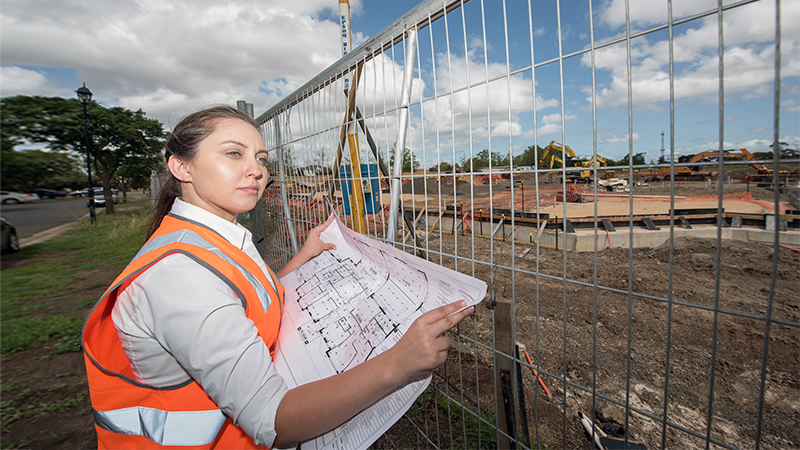Building Surveyor vs Building Inspector
When it comes to the construction industry, the roles of a Building Surveyor and a Building Inspector might seem interchangeable, yet they hold distinct responsibilities critical to the construction process. Let's delve into the nuances of each role, understanding the unique contributions they make.
Building Surveyor: Navigating Compliance and Planning
In the realm of construction, a Building Surveyor takes on a multifaceted role, ensuring that construction projects adhere to local building codes, regulations, and safety standards. Their responsibilities span from the initial planning stages to the completion of the project. A Building Surveyor acts as a guardian of compliance, meticulously reviewing designs, issuing permits, and conducting inspections at various construction phases. Educational Foundations for Building Surveyors To embark on the path of a Building Surveyor, individuals often start by obtaining a relevant undergraduate degree in building surveying or a related field. This educational foundation equips them with the knowledge needed to navigate the complexities of construction regulations and codes.Building Inspector: On-Site Guardianship of Construction Quality
On the other hand, a Building Inspector is primarily concerned with on-site inspections during different phases of construction. Their role is to verify that the construction aligns with approved plans and complies with all relevant regulations. Building Inspectors play a crucial part in maintaining the quality and safety of construction projects. Qualifications and Expertise for Building Inspectors Building Inspectors typically begin their journey with a high school diploma and gain expertise through on-the-job training or certifications in building inspection. Their keen eye for detail and understanding of construction processes make them valuable assets on construction sites.Building Surveyor vs Building Inspector
Building surveyors and building inspectors are crucial while constructing residential or Commercial buildings and they both require Safety Induction Trainings. While building surveyors and building inspectors both play important roles in the construction industry, they have distinct differences:
Students in building and construction courses often learn about fundamental principles of construction, project management, building regulations, safety protocols, and sustainable construction practices. The curriculum is designed to blend theoretical knowledge with practical applications, ensuring that graduates are well-equipped to tackle real-world challenges in the field.
Practical experience is a significant component of Advanced Diploma of Building Surveying course. Students may engage in site visits, case studies, and practical exercises that simulate real-world scenarios. This hands-on approach allows individuals to develop the practical skills necessary for effective building surveying, including the ability to assess compliance with building codes, identify potential risks, and provide solutions to ensure adherence to regulations.
In conclusion, building surveying professionals ensure that our buildings are safe, compliant, and up to code. To become a building surveyor, you'll need education, experience, and a commitment to ongoing learning to keep track of upgraded aspects of building surveying and knowledge of technical advancements. While building surveyors and building inspectors share some similarities, they have distinct roles within the construction industry.
So, if you're intrigued by the idea of being the guardian of building safety and compliance, consider a career as a building surveyor. It's a challenging path that allows you to make a significant impact on lives and standards.
FAQ
1. Q: What is the primary difference between a Building Surveyor and a Building Inspector?
A: A Building Surveyor and a Building Inspector play distinct roles in the construction and building industry. A Building Surveyor is responsible for assessing and ensuring overall compliance with building codes, regulations, and standards. They oversee the entire construction process, including design approvals, inspections, and issuing permits. On the other hand, a Building Inspector focuses more on on-site inspections during various construction phases, ensuring that the work aligns with approved plans and complies with regulations.
2. Q: What qualifications are required to become a Building Surveyor or Building Inspector?
A: Both roles typically require a background in construction or a related field. To become a Building Surveyor, individuals often pursue a degree in building surveying or a similar discipline. Building Surveyors may also need to obtain additional certifications or licenses depending on their jurisdiction. Building Inspectors usually need a combination of relevant education and practical experience, often starting with a high school diploma and gaining expertise through on-the-job training or certifications in building inspection.
3. Q: Can one person perform both roles of a Building Surveyor and Building Inspector?
A: While some individuals may have skills and qualifications that overlap, the roles of a Building Surveyor and a Building Inspector are distinct. Building Surveyors are involved in the entire construction process, focusing on compliance, planning, and legal aspects. Building Inspectors, however, primarily concentrate on on-site inspections to verify that construction aligns with approved plans and meets regulatory standards. While someone can have expertise in both areas, they are typically separate professions with unique responsibilities and skill sets.

